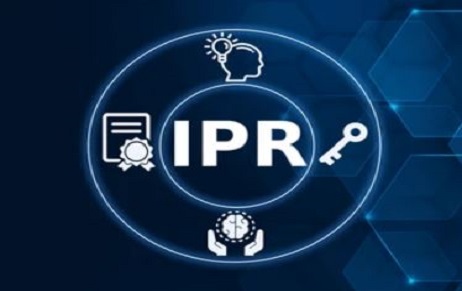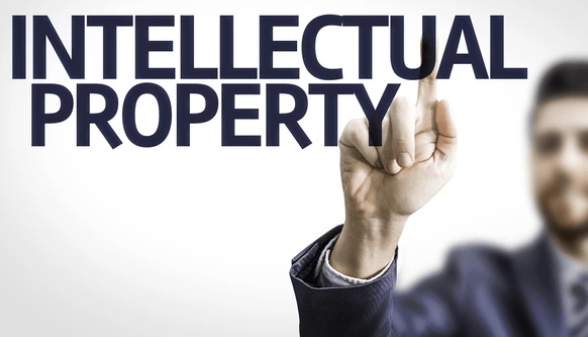The intellectual property (IP) licensing has gone a long way with the pace of technology…
Role of Intellectual Property in Entertainment Industry
Introduction
The media and entertainment industry is a broad and ever-evolving domain that includes several industries, including music, cinema, television, fashion, and more. In this sector, intellectual property (IP) regulations are essential for defending the rights of inventors, artists, and producers.
A thorough awareness of intellectual property laws is crucial, regardless of your career goals—be they that of a fashion designer, singer, filmmaker, or just someone curious about the legal side of entertainment. We will examine the fundamental ideas and rules of copyright, trademark, and patent laws as well as how they relate to various entertainment business sectors in this extensive book.
By 2030, it’s anticipated that the media and entertainment sector in India will generate $100 billion in revenue. The media and entertainment business has experienced exponential growth, making it imperative to comprehend the significance that intellectual property rights play in this domain. Copyright and trademark are the most important IP rights in this industry. While trademarks protect movie titles, important characters, and other film components, copyright protects content from infringement and recognizes the rights of authors. But as the sector grows, so does the problem of intellectual property rights infringement, cybercrimes, copyright infringement, and trademark infringement. Law and the courts encourage innovation by guaranteeing its unrestricted flow while continuously attempting to avert abuse.
This article will discuss the rules about intellectual property that control the media and entertainment industry, as well as the importance of protecting IP and its various applications in these fields.
Copy Right Law in the Entertainment Industry
The cornerstone of intellectual property protection in the entertainment sector is copyright law. It gives authors and artists the sole ownership rights to their original writings, music, films, and artwork. The ability to duplicate, distribute, perform, and exhibit the work is one of these rights.
Copyright law is especially crucial in the entertainment sector for safeguarding movies, TV series, songs, screenplays, and literary works. For instance, copyright law makes sure that your film is shielded from unauthorized distribution or duplication if you are a filmmaker.
Copyright law protects you as a musician by preventing unauthorized use of your creative works. Creators need to comprehend the fundamentals of copyright law to safeguard their creations and negotiate licensing and distribution contracts with skill.
Patent Law in the Entertainment Industry
Patent law is concerned with protecting ideas and innovations, whereas copyright and trademark laws are primarily concerned with protecting creative works and brands. Within the entertainment sector, patents may be pursued for novel technologies, procedures, or apparatuses that offer useful uses in the development, manufacturing, or dissemination of entertainment material.
Patent protection may be available, for instance, for the creation of new audio or visual effects technologies or digital streaming services like Netflix. With the help of patents, creators can make money off of their creations and stop others from exploiting or making money off of their concepts without their consent. Patents also provide inventors with temporary exclusive rights to their discoveries.
Trademark Law in the Entertainment Industry
When it comes to branding and selling entertainment-related goods and services, trademarks are crucial. An identifiable sign, symbol, or statement that sets one product or service apart from competitors in the market is called a trademark. It could be a phrase, mark, motto, or even just a combination of colors or sounds. Trademarks are essential to the entertainment industry’s ability to establish and preserve brand identification.
Consider the recognizable Nike swoosh or the McDonald’s golden arches, for instance. These trademarks enable consumers to quickly recognize a brand and link unique attributes and experiences to a specific good or service. Trademarks are used in the entertainment business to safeguard the names, logos, and slogans connected to motion pictures, television programs, musical acts, and even individual celebrity names.
Enforcement and Licensing in the Entertainment Industry
In the entertainment sector, intellectual property rights enforcement can be complicated. For example, unauthorized use, duplication, distribution, or performance of intellectual property can be considered copyright and trademark infringement. Legal action may be taken in these situations to defend the IP owner’s rights and pursue damages compensation.
Another important component of IP management in the entertainment sector is licensing. Through licensing, intellectual property owners can allow third parties to utilize their creations in exchange for royalties or other payments. For instance, a musician may license the use of their song in a commercial or motion picture, or a filmmaker may license the distribution rights to a production firm.
[Image Sources: Shutterstock]

Another important aspect of the entertainment industry is contract enforcement, which guarantees the faithful observance of agreements amongst different parties involved (artists, production firms, distributors, and venues) and works to settle conflicts resulting from contractual breaches or disagreements. On the other hand, licensing serves as the entry point for approved usage, allowing permissions for the specific and controlled use of copyrighted content, such as incorporating music into motion pictures, adapting books, or producing artistic works that are derivative. This also applies to licensing for items, which permits the use of entertainment properties—such as recognizable characters or logos—on goods, facilitating their spread across a variety of goods.
Furthermore, the field of performance and venue licensing explores the complexities of contracts that enable the use of plays, music, or live performances in a variety of settings, from theaters to arenas and symphony halls. The crucial responsibility of entertainment lawyers, who serve as the guardians of these rules and laws, is at the center of these intricate legal matters. They maneuver through these complex domains, drawing up and negotiating contracts with precision, handling conflicts with deftness, guaranteeing perfect adherence to intellectual property regulations, and strategically counseling clients to protect and preserve their creative assets and business interests in the constantly changing and dynamic entertainment sector.
Conclusion
To sum up, the blogosphere is a vast canvas on which ideas bloom, voices collide, and communities prosper. Its adaptability and dynamic quality enable people and institutions to exchange knowledge, skills, and insights on a wide range of subjects and passions. The blog’s adaptable platform allows it to spread knowledge while also encouraging communication and connections among a worldwide readership. Blogs continue to be essential tools for learning, communication, and creating thriving online communities. They have a profound impact on how we consume and engage with content in our connected world, which is a monument to the revolutionary force of the digital era.
Author: Kavya, in case of any queries please contact/write back to us via email to chhavi@khuranaandkhurana.com or at IIPRD.



